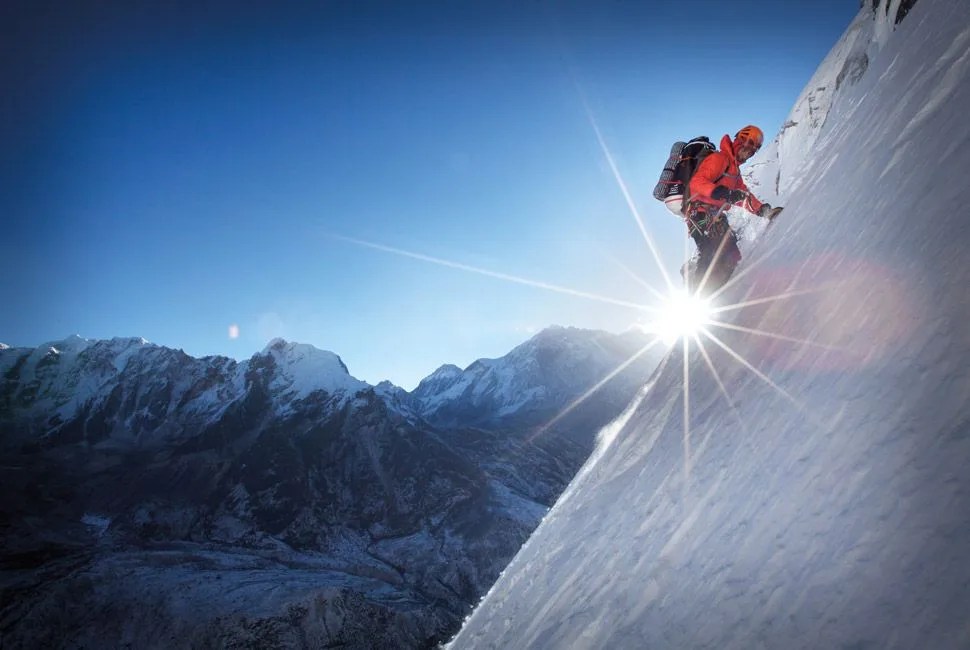The north face of the Eiger shoots up nearly 6,000 feet in the sky like a vertical dagger of limestone and ice. It is a classic symbol of the Swiss Alps, and also the perils that can accompany the sport of mountaineering; having claimed the lives of more than 60 climbers to date, the north face is so dangerous that it’s sometimes called the Mordwand — German for “Death Wall.” It was first scaled in 1938 over the course of three days, securing the climbers who achieved it — Heinrich Harrer, Anderl Heckmair, Fritz Kasparek and Wiggerl Vörg — a place in the history books of modern mountaineering. In February 2007, professional climber Ueli Steck turned the sport on its head when, all alone, he scaled the entire north face in 3 hours and 54 minutes, setting a record for the fastest time ever. A year later, he did it again, this time entirely without ropes. His astonishing new time: 2:47:33*.
A Swiss native, Steck began his climbing career at the age of 17, first climbing Eiger’s north face at 18. In 2012, he summited Everest with his climbing partner, Tenji Sherpa, neither man using supplemental oxygen during the entirety of the ascent (now a rare feat upon the world’s highest mountain). During an ascent the following year, Steck was involved in an altercation with nearly 100 Sherpas at Everest’s Camp 2, sparking international media attention. The incident nearly cost the lives of him and his company, Simone Moro and Jonathan Griffith; the trio never finished their summit. Focus in the climbing world has since shifted to Ueli Steck’s most recent undertaking, a solo summit via the south face of Annapurna, perhaps the most technically challenging climb in the world. Despite an avalanche, Steck did it in a marathon 20 hours, arriving back at his base camp eight hours after he summited. This landmark achievement granted the climber the Piolet d’Or, one of the climbing world’s most prestigious awards, and secured his foothold among the world’s best. We sat down with the living legend to talk about the gear he can’t live without and his approach to the sport, and to find out if there’s life for him after climbing.
* Swiss climber Dani Arnold recently beat Steck’s record time by 19 minutes, though he used ropes and didn’t complete the climb during the winter season, as Steck did.
MORE GP INTERVIEWS: James Fairbank, Rapha Cycling | Buck Tilton, NOLS | Craig Alexander, Ironman
Q. What’s one thing every man should know?
A. How to cook a delicious meal.
Q. What’s the hardest thing you’ve ever done?
A. On my first expedition to the Himalayas I spent the night with an open bivvy at 7,000 meters without a sleeping bag. It felt like endless cold hours until the sunrise.
Q. Name one piece of gear you can’t live without.
A. Running shoes. I always have a pair somewhere in my bag when I am traveling.
